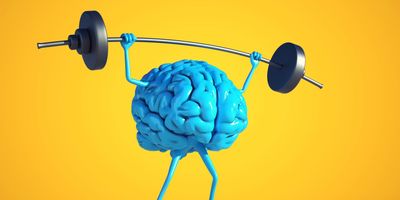Physical Exercise Boosts Cognitive Health
Edited by Manasi Talwadekar
October 08, 2025
Older adults with normal thinking and memory did better mentally when they exercised and did brain-training activities. These activities worked better than doing nothing or just getting general health information.
METHODOLOGY: Researchers conducted a systematic review and network meta-analysis of 109 randomized controlled trials to evaluate the efficacy of lifestyle interventions in preventing cognitive decline in 23,010 older adults (median age, 70.1 years; 65% women) who were cognitively unimpaired. Interventions included diet (n = 7), physical exercise (n = 52), cognitive training (n = 29), and social activity (n = 6), as well as combinations of these approaches. Control groups included no intervention (n = 49), active control with minimal engagement tasks (n = 20), and health education (n = 33). The outcome was global cognition.
TAKEAWAY: Compared with health education, the combination of physical exercise and cognitive training and that of diet, physical exercise, cognitive training, and health education improved global cognition (P = .0011 and P = .028, respectively). Cognitive training alone and physical exercise alone also improved cognition (P = .00092 and P = .0014, respectively). Similar results were noted in comparison with no intervention. Compared with no intervention, cognitive training alone (P < .0001) and combined with physical exercise (P = .0011) showed the largest effects in participants younger than age 70. In those aged 70 years or older, the combination of physical exercise and cognitive training was more beneficial (P = .032). Dietary interventions lasting < 3 months vs no intervention showed the largest effect (P = .0094), followed by multidomain physical exercise and cognitive training (P = .0039). For interventions lasting over 3 months, the largest effects were seen with combined physical exercise and cognitive training (P = .0102) and cognitive training alone (P = .010).
IN PRACTICE: “These findings highlight the potential of both targeted single-domain and carefully designed multidomain interventions to support cognitive health in older adults who are cognitively unimpaired, while also underscoring the importance of considering factors such as age, intervention duration, and adherence when designing future prevention programs,” the authors wrote.
“An understanding of these dynamics will be crucial to the implementation of dementia prevention programs and their real-world applicability.”

Copyright © 2025 Simversa - All Rights Reserved.
This website uses cookies.
We use cookies to analyze website traffic and optimize your website experience. By accepting our use of cookies, your data will be aggregated with all other user data.